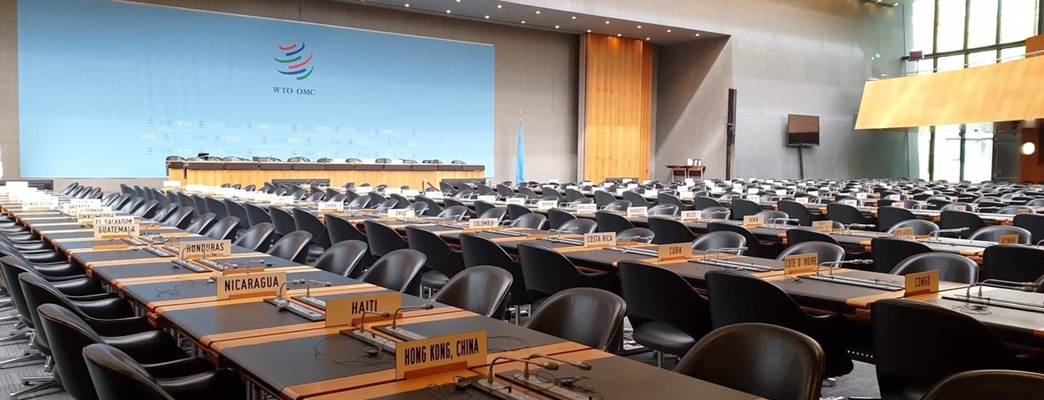Norway's statement at the informal Trade Negotiations Committee (TNC)and Head of Delegations (HoDs) meeting,
as delivered by Mr. Dagfinn Sørli, Ambassador and Permanent Representative to the WTO and EFTA, Norway
Thank you, Director General,
Let me join others in welcoming you and wishing you all the best in your role as Chair of the TNC.
Thank you for your report, and thanks to negotiating chairs for their reports.
With MC12 fast approaching, we support your call for focusing our collective efforts on a realistic number of concrete and meaningful deliverables. Furthermore, we support your suggestion to reconvene in the fall two weeks earlier than what has been the custom.
In our collective efforts to achieve concrete results by MC12, we should not forget that the ultimate purpose of the multilateral rules-based trading system is to provide a basis for social and economic development to the benefit of people all around the world. Social, economic and environmental sustainability must guide our efforts.
The pandemic represents the biggest immediate challenge facing the world today. Keeping markets open and facilitating trade is critical in order to secure the smooth functioning of vulnerable but essential supply chains. The WTO is part of the toolbox available to the global community, and the trade and health initiative of the Ottawa Group is a good starting point for addressing this issue. Furthermore, we fully support your appeal, Chair, to manufacturers, international organisations, civil society and business associations to find collaborative ways to increase vaccine production. We also support your call for WTO members to craft a pragmatic approach to vaccine equity, including a resolution of the TRIPS waiver request.
Turning to our regular negotiating processes, we agree that concluding the fisheries subsidies negotiation is our most important priority, and we support your call for ministerial involvement in July. For such an involvement to be successful, we need a text with a limited number of remaining issues and clearly defined alternatives. To achieve this in less than three months’ time, we need to concentrate on the core issues of IUU and overcapacity and overfishing, as well as transparency and special and differential treatment. We welcome the announcement today by ambassador Wills that he intends to issue a revised text next week.
Most importantly, however, members need to move away from old positions towards more realistic compromises. For our part, we have stated clearly that the so-called hybrid approach towards over-capacity and overfishing is not our preferred option, but we have accepted that the hybrid approach is the only realistic compromise. Norway will continue to engage in our common search for viable compromises and pragmatic solutions.
Chair,
Norway would like to thank fellow Members who are spearheading efforts to advance the rules-based trading system through the various Joint Statement Initiatives. These initiatives are responding to Members’ ambitions to update our rule book by addressing issues of relevance in the 21st century. The initiatives also represent a variety of issues where the format of the outcomes will be diverse and cannot be prejudged. Norway will contribute actively towards concrete deliverables at MC12, with transparency in domestic regulations being one of the prime candidates. Furthermore, we will work with other members to advance issues related to environmental sustainability.
Finally,
Norway believes that WTO reform must be at the centre of our attention at MC12. Views on what reform should mean, and what may be achieved, diverge widely within the membership, and we tend to talk past one another rather than with one another. We need to seriously discuss what may constitute a common ground for dealing with reform at MC12 and beyond.
For our part, we believe reform needs to address all three pillars. Restoring a fully functioning dispute settlement system is of fundamental systemic importance, and it is hard to envisage a successful reform effort without such a restoration. It is time to start the conversation about what we can realistically achieve by MC12. As a minimum we need something that gives us and other members confidence that a solution will be found – as well as a process to get us there. Norway believes that we have a good basis for such a conversation in the so-called Walker principles.
Thank you.
